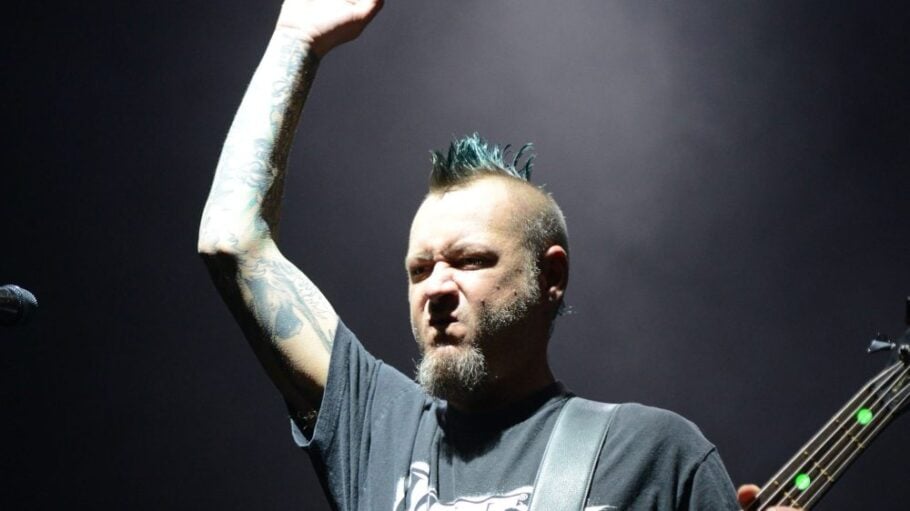Sam Rivers, bassist and founding member of the metal band Limp Bizkit, died on Saturday, the band announced in a social media post. No cause of death was stated, although he had a history of alcohol-related liver disease; he was 48.
“Today we lost our brother. Our bandmate. Our heartbeat,” the band wrote. “Sam Rivers wasn’t just our bass player — he was pure magic. The pulse beneath every song, the calm in the chaos, the soul in the sound.”
Born in Jacksonville, Fla. In 1977, Rivers and first began playing music in middle school, beginning with tuba because his friend, future Limp Bizkit drummer John Otto, played jazz drums. While Rivers and Otto are often said to be cousins, the pair had initially thought they were related but turned out not to be.
Rivers later switched to bass and guitar, and became friends with future Limp Bizkit singer/rapper Fred Durst. The pair formed a short-lived band called Malachi Sage, but soon regrouped with Otto to form Limp Bizkit in 1994, uniting with madcap guitarist Wes Borland (who would leave and rejoin the band several times) and later, former House of Pain member DJ Lethal.
The band was aligned with the fast-rising “nu-metal” movement and, after a show in Los Angeles opening for Korn, were signed by Flip Records, whose founder, Jordan Schur, later struck a distribution deal with Interscope for the band’s debut album. That album, “Three Dollar Bill Y’all” was released in 1997, and the band toured extensively with the Deftones, Helmet, and on the Warped tour. The rapidly building buzz culminated with their 1999 follow-up, “Significant Other,” driven by the single “Nookie” and a half-serious metal cover of George Michael’s hit “Faith.”
The album rocketed to No. 1 on the Billboard 200 and Limp Bizkit quickly became one of the biggest rock bands in the country. However, their set at the disastrous 1999 Woodstock festival was marred by violence; many blamed Durst for the uproar, as he crowdsurfed on plywood that rioters had torn off of festival fixtures and then shouted “It wasn’t our fault” as he left the stage, although opinions vary. The violence resulted in three deaths, dozens of injuries and 44 arrests, amid multiple incidents of rape, vandalism and arson.
The band followed with the 2000 set “Chocolate Starfish and the Hot Dog Flavored Water,” but Durst’s unfiltered, often homophobic and sexist lyrics and comments and ongoing conflicts between him and Borland resulted in the latter leaving the band in 2001. Rivers shifted over to guitar for the band’s 2003 album “Results May Vary,” but Borland rejoined the following year.
Limp Bizkit went on hiatus in 2006 and Rivers worked as a producer with Jacksonville bands Burn Season and the Embraced, a role he would continue after the band reunited in 2009. Limp Bizkit continued to tour and release albums sporadically over the following years, although Rivers left in 2015 for health reasons that he later revealed were liver ailments due to alcohol abuse.
“I got liver disease from excessive drinking … I had to leave Limp Bizkit in 2015 because I felt so horrible, and a few months after that I realized I had to change everything because I had really bad liver disease,” Rivers told writer Jon Wiederhorn. “I quit drinking and did everything the doctors told me. I got treatment for the alcohol and got a liver transplant, which was a perfect match.”
He rejoined in 2018 and remained until his death.
“He was a once-in-a-lifetime kind of human. A true legend of legends,” the band concluded in its post on Saturday. “And his spirit will live forever in every groove, every stage, every memory,” the band continued. “We love you, Sam. We’ll carry you with us, always. Rest easy, brother. Your music never ends.”
From Variety US
































